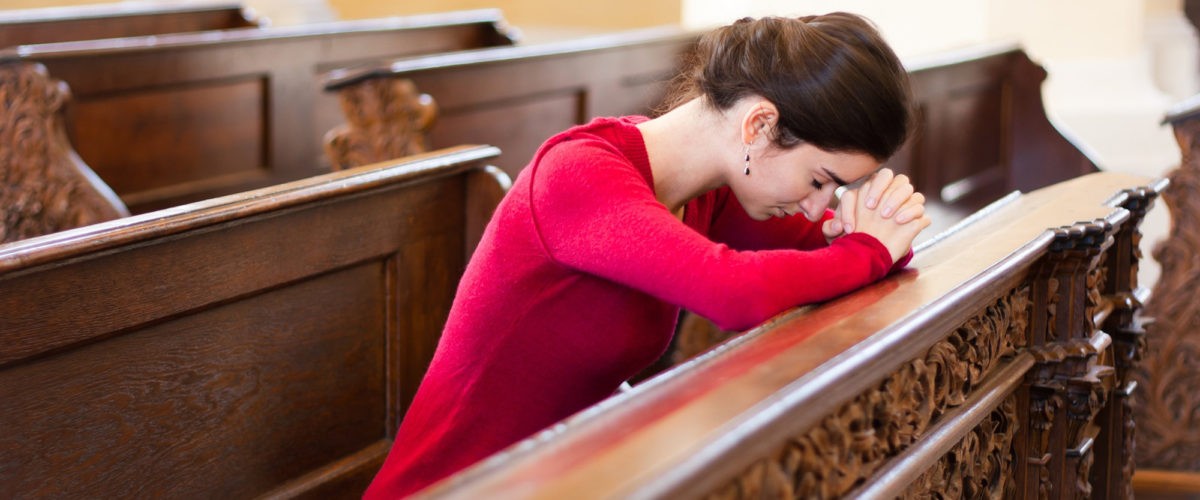At the end of the day, my theology means very little until it touches the ground. I am an Episcopal priest, spiritual director and recovery coach, so my whole ministry rests inside the stories that are shared with me, the troubles I hold in confidence, the tender realities of being alive that grieve the hearts of those who choose to speak to me.

Erin Jean Warde
I feel explicitly called to be the person who can receive the story a person is scared to tell, which means I am called by God to destigmatize those stories so they feel able to stumble out past trembling lips. What we know about shame is that speaking it can begin the healing process, which means that giving people spaces where they can speak about the truth of their lives without judgment is a healing ministry blessed by God.
Abortion ban cuts off spiritual resources
The recent Texas abortion ban is one of the most restrictive in the U.S., banning abortion at approximately six weeks (before many know they are pregnant) with no exceptions for rape, incest or other life-threatening challenges caused by the pregnancy. It actively works against this healing ministry blessed by God, because it exists to strike fear into the hearts of those who need to be given the opportunity to speak to their experiences and, in having them heard, receive compassion in return.
Spiritually, cutting people off from resources that could heal their bodies goes against the ways Jesus Christ himself showed us that bodies deserve tenderness, healing and care, whether it looks like faith or like a profane mixture of spit and dirt. In both the grime and prayer, Jesus shows up to heal people, and our understanding of how to resource people with healing should cover just as much of a wide array of options.
If you begin to have this conversation in any religious context, it seems there’s always a straw man, but I feel certain Jesus knows how to separate that chaff from the wheat. Theological arguments are important — they often steward us toward a better understanding of truth — but the arguments themselves have to find connection with the stories of the people who sit before me, because the person asking me to pray for them will always win the argument. The person standing before me will always show me the face of Jesus Christ in a way that arguments never can bear.
Death sits on every corner of this argument
Any theological conversation about the abortion ban has to remember that, by limiting access to abortion, people will die. Death sits on every end of this argument, whether we like it or not, a reality that reminds us that we are still in a world that needs divine healing.
“Death sits on every end of this argument, whether we like it or not, a reality that reminds us that we are still in a world that needs divine healing.”
By offering this type of health care to people who otherwise could die, we are not promoting death, we are acknowledging the reality of death on every end of it and trying to preserve life where it can be preserved. I believe very deeply in the gift of life, which I believe is bestowed upon us by God, and I believe that in the inevitability of death we can find hope in the resurrection of Jesus Christ that will draw us back into the heart of God out of which we came.
But inside the gift of life is the reality of death, the presence of Good Friday precipitating Easter, and the people who sit in front of me cannot be rushed into Easter. They must sit inside Good Friday, and I will sit with them. Resurrection may be on the way in the fullness of time, but death is still with us in this present moment, and as a priest I have to continue to take my place with the people who have entrusted me with their stories.
Why grace is hard
This conversation is an opportunity to call on the grace of Jesus Christ. This grace offers forgiveness and abundant life to all creation and, in doing so, it can anger us, stoke every fire we try to keep as embers, and challenge whether or not we are Christian at all. And it probably should.
Grace should be as hard as it is, because it goes against the way our minds want to conceive of the world, forever muddying the waters we wish could be so clear. And yet it would appear that we believe the grace of Christ can become conditional in these circumstances, such that we can put asterisks on who God would love and heal, turning Christ into our own argument and not the God revealed in Scripture.
I don’t write any of this to say it is an easy conversation. I know the waters are muddy, and I have found my peace mining for gold in the hazy waters of the very incarnate people who have come to me for care.
I believe it is quite difficult to have this conversation, just as it is difficult for those who need this care to ask for it, to bring their stories to me, to pray their prayers to God. If you need any proof that we live in an imperfect hurting world, look no further than this abortion ban and into the faces of the people who will be hurt by it.
“I will continue to serve the people who come to me without judgment, because I want to try to offer the grace modeled for me by Jesus Christ.”
If I could figure out a world where things were different, I would, because I believe it would lighten the load of grief on everyone involved, a grief I pray is lightened one day. But until then, I will continue to serve the people who come to me, because I am a priest and my calling is to try to offer healing to a world that is asking for it.
I will continue to serve the people who come to me without judgment, because I want to try to offer the grace modeled for me by Jesus Christ, who had the divine gift of honoring the whole person in front of him, as they are, loving them in such a way that they were healed in this world and in the next. Oh that we could love the people in front of us in such a way that they were healed in this world and in the next.
Erin Jean Warde is an Episcopal priest, writer, recovery coach and spiritual director in Austin, Texas. She is author of the forthcoming book Awakening in Sobriety with Brazos Press. Erin Jean is creating Discerning Sobriety, a course and community exploring the intersection of sobriety and spirituality. She shares reflections on her website and on Instagram and Twitter (@erinjeanwarde).
Related articles:
SBC calls for ‘immediate abolition of abortion without exception or compromise’
When being ‘pro-life’ really isn’t: How I became a Democrat who opposes abortion | Analysis by Chris Conley


